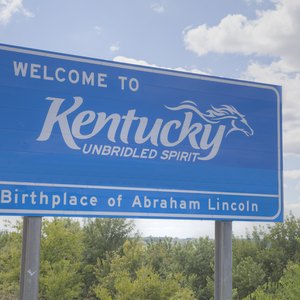
A land contract differs from a traditional mortgage in two specific ways. First of all, the payments are made not to a bank but to the seller of the property. In the second respect, the deed does not pass from seller to buyer until all the expected payments are made from the latter to the former. In this sense, it can be considered a rent-to-own arrangement.
In bygone times, default by the buyer nullified the contract. The seller kept all prior rental income while the buyer had no claim to the property, even if there were just one or two payments left. In 1979, the Kentucky Supreme Court reviewed the constitutionality of that regime and determined that default on a land contract was equivalent to default on a bank-issued mortgage. This means that default must be addressed through foreclosure.
How Does a Foreclosure Work with a Land Contract KY?
In requiring a foreclosure process, the Court sought to recognize the equity that a renter was accumulating under the land contract. As with a foreclosure pursued by a bank or finance company, the aim is to remove the delinquent renter/buyer from the premises and sell the property to another party. Any proceeds above and beyond the outstanding debt owed to the seller will then devolve to the former tenant/purchaser.
Whereas in many states foreclosure can be executed by a lender according to the loan documents, Kentucky mandates judicial foreclosures. This means that the seller in a land contract must retain a licensed attorney and file a request with a state court of jurisdiction after 60 days pass without payment. Before doing that, however, the seller/lender should, through the attorney, send a "breach letter" to the tenant, alerting him or her to the default status. Once this foreclosure request is filed, a seller should not accept any money from the tenant.
In Kentucky, it can take up to six months for the court to notify the tenant of the foreclosure proceedings. This notification can come through certified mail or, alternatively, be served by a county sheriff representative or a warning order attorney. If the court receives no response back from the buyer in default, the court allows 20 days to pass, an order of default judgment is usually handed down within a month's time.
If, by contrast, the renter contests the foreclosure, the process can take up to six months before resolution. In judicial foreclosure states, the sheriff's department carries out the physical eviction if such a scenario is necessary.
If the seller is still making payments on the property to a lender and the seller defaults, the tenant will recoup nothing from the foreclosure.
What Are the Elements of a Land Contract?
The seller and the buyer must be clearly identified. Included should be the physical address of the property and a legal description of its metes and bounds. The total selling price, down payment and monthly installments should likewise be delineated, as well as the length of the contract term. If a balloon payment is to be made at the end of the term, that amount too should appear in the contract document.
A simple land contract purchase agreement is easy to locate online.
Are Land Contract Homes Dangerous for Buyers in Kentucky?
As noted above, buyers are not as exposed and vulnerable as they were 50 years ago. Still, other dangers lurk. If the seller is still making payments on the property to a lender and the seller defaults, the tenant will recoup nothing from the foreclosure. Meanwhile, sellers and buyers often miscommunicate on maintenance, property taxes, insurance and many other details if the contract is not specific.
References
Tips
- Keep all documents pertaining to your land contract in Kentucky. This includes payment receipts and communications.
Writer Bio
Adam Luehrs is a writer during the day and a voracious reader at night. He focuses mostly on finance writing and has a passion for real estate, credit card deals, and investing.

